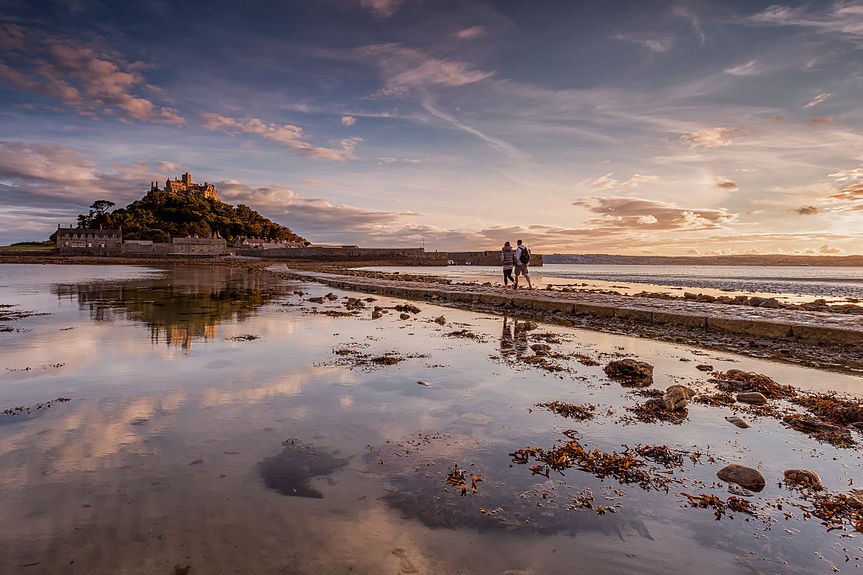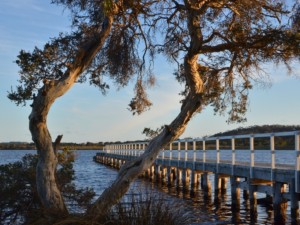Good news in tourism Jan 26 to Feb 1, 2020

Welcome to a new week of buzzword salads smeared with fear … No way!
Fill yourself up without weighing yourself down. Tuck into something packed full of goodness. Get your weekly feed of what’s really going on in the world of travel & tourism right here at The “Good Tourism” Blog. Tossed together on Sunday to be ready on Monday, “Good news in tourism” is the perfect pick-me-up for the start of a working week. And go!
Important “GT” stuff first in case you missed it during the week:
Sharath Bhat at the All India Resort Development Association (AIRDA) published an interview with “GT” during the week. It was a series of general questions that your correspondent enjoyed tackling in his clumsy, big-picture sort of way several weeks ago.
Look out for a fresh “GT” Insight over the next couple of days thanks to our brilliant “GT” Insight Partner Second Look Worldwide. It’s all about the challenges in setting up and supporting community homestays and the tremendous opportunities they create for all concerned.
Other good news in tourism, in no particular order:
Not “good news”, necessarily, but very important … Probably the most credible source of information about the coronavirus is the World Health Organization (WHO).
Electric aviation
Here’s what appears to be a balanced article about airlines’ initiatives and struggles in an increasingly carbon-conscious time, written by Valerie Silva for the Airline Passenger Experience Association (APEX), before we enjoy the following future-forward publicity pieces …
In partnership with the UK’s BAE Systems and EasyJet, USA company Wright Electric says it has started developing an electric engine for a 186-seater aircraft. They hope to begin test-flying the aeroplane in 2023 and press it into commercial service in 2030. The plane will be able to fly for around an hour — good for short-haul routes such as London to Paris.
The first electric passenger aircraft will fly on a Finnish domestic route by the end of this decade according to Henri Hansson, technical head of Finland’s airport operator Finavia. Finavia has joined the Network for Electric Aviation (NEA), which is dedicated to the development of electric aviation in the Nordic region.
Battery technology represents not only a major storage challenge for some alternative energy sources on the ground, but also a serious power-to-weight ratio challenge in the air. For its project to build the fastest electric aeroplane, UK’s Rolls Royce had to innovate.
Traveller dispersal
About 80% of foreign tourists to Korea (ROK) visit only the capital Seoul, which is why the government will subsidise five cities’ efforts to develop into regional tourism hubs. They are Busan, Gangneung, Jeonju, Mokpo, and Andong.
Chris Flynn of “GT” Insight Partner the World Tourism Association for Culture & Heritage reckons it “appears to be a well thought out and funded initiative to alleviate visitor pressure and combat the threats of overtourism”.
According to Kurt Janson of the Tourism Alliance, it is easier to attract people who live in London to visit England’s regions than it is to get overseas visitors out of London. Visit Cornwall boss Malcolm Bell sees the opportunity. He reckons 2020 will be about climate-conscious consumers forgoing holidays abroad in favour of holidays at home.
Spain wants to diversify away from seaside tourism and encourage more trips inland. It’s starting to work. In 2014, foreigners accounted for 5% of all tourists “who stayed at a rural home in the country”. Today that’s 20%. And the government wants it to rise to 35%.
Dubrovnik, Croatia claims it has reduced congestion in its old city center due to “a better distribution of cruise lines to the port and various traffic coordination measures”. Called the Respect the City project, it includes “an app that, when the number of tourists in the City exceeds 4,000, gives users alternate routes and locations to visit”.

Responsible tourism policy & planning
In the USA, Honolulu City Council has passed new legislation that will establish a “Keep Hawaii Hawaii” pledge for tourists designed to inform visitors about “cultural and environmental issues” so as to “decrease waste, reduce burdens on infrastructure, and preserve wildlife”.
India’s Rajasthan state is formulating a new tourism policy that would, according to the source, “maximise, socialise and economise benefits to the local communities, conserve natural resources, protect heritage and begin awareness campaigns [about more ethical and responsible tourism practices]”.
Meanwhile, India’s Kerala state continues to press ahead in responsible tourism. Kerala’s “RT Mission” is setting ambitious targets in 2020 – 2021, including number of RT units, number of plastic-free RT units, and number of RT-linked community members.
“Japan has seized the opportunity to increase its focus on responsible and sustainable practices in the business events industry. Not only does this support the UN SDGs, but it adds value for planners, and brings a competitive edge for its business events stakeholders.”
Philippines’ Tourism Infrastructure & Enterprise Zone Authority (TIEZA) has a PHP 602 million (USD 11.85 million) budget for the proactive rehabilitation of destinations. “We want to do it now so that Boracay will not happen again,” Tourism Secretary Bernadette Romulo-Puyat said. In 2018, Boracay Island closed to tourists for six months to clean up in the wake of irresponsible tourism policy and planning.
Cultural heritage
Princess Dana Firas of Jordan on the economic and intrinsic values of cultural heritage and the need for local communities to stand up for both.
India is looking at reviving its “Adopt a Heritage” scheme, which invites organisations and individuals to become “monument mitras” (friends) to raise money for tourist-friendly amenities. Nearly 100 sites, including the Taj Mahal, are part of it. A new campaign will roll out alongside a “Dekho Apna Desh” (see your own country) campaign to encourage domestic trips.
The Cabinet of India’s Tripura state has proposed that the Archaeological Survey of India (ASI) work towards getting Unakoti listed as World Heritage. Unakoti is an ancient pilgrimage site famed for its huge rock reliefs honouring the Hindu god Shiva. This comes as Tripura’s new tourism policy prioritises “border tourism [Tripura borders Bangladesh], eco tourism, religious tourism, tea tourism, adventure tourism, ethnic tourism, and heritage tourism”.

Indigenous stakeholders
“While Canada’s First Nations groups have long struggled to build bridges with settler groups, they now benefit from the active engagement of provincial tourism departments […] For groups that have long been on the economic margins, increased tourist interest is a powerful force for financial well-being.”
With a lease given to the Yindjibarndi Aboriginal Corporation, glamping, camping, and caravan access will soon be available at Palm Pool, Millstream Chichester National Park in the Pilbara region of Western Australia. The state government’s Department of Biodiversity, Conservation and Attractions coordinated the opportunity.
Tourism taxes
Taxes are good!? Well, it depends.
Governor Mark Gordon of Wyoming, USA will support a new 5% statewide (plus 2% local option) lodging tax proposal that, if passed, will come into effect January 1, 2021. The good news here is that the Governor recognises the importance of tourism, which is Wyoming’s second largest industry and its biggest employer.
Transparency in collection and spend make some taxes better than others. And transparency appears to be great at the local level — in the USA, at least, if the last few weeks worth of news snippets are anything to go by. Here’s another:
Jefferson County in the state of Indiana, USA in 2019 collected about 25% more revenue than it budgeted for from its 5% InnKeepers’ Tax. It is hoped the USD 100,000 windfall will be reinvested in tourism, which “impacts hundreds of businesses” in the County.
Eco, ‘co, co, ‘o, o … oh?
Marike Finlay-de Monchy, founding member of the Association for the Preservation of the Eastern Shore in Nova Scotia, Canada reckons it is high time conservationists in her area start saying ‘yes’ to “positive, environmentally sustainable, economic enterprise”.
Tourism is front-of-mind for at least some environmentalists in Ireland. Dr Simon Berrow, CEO of the Irish Whale & Dolphin Group, said he would “like to see the promotion of marine wildlife tourism so that residents and tourists alike can appreciate the rich marine biodiversity in Ireland.”
Azerbaijan’s new ecotourism association, AETA, will create new eco-parks in Baku and the Absheron Peninsula as pilot projects. The projects aim to “improve environmental culture” and create “conditions for local and foreign tourists who want to engage in active outdoor types of tourism”.
The UNWTO has offered training and technical support for sustainable tourism and ecotourism in Pakistan’s Khyber Pakhtunkhwa province.
Odds & ends
Newsy bits that don’t easily fit into this week’s arbitrary clusters:
“GT” generally ignores travel & tourism industry awards-related news because many of the programs (not all) are based on whoever bothers to nominate themselves and/or rally enough votes; are bought and paid for by the award recipients through normal business dealings or some other back-scratching; and/or are little more than cynical exercises in public relations and self-congratulation. (You know it’s true … Yes, you do!) And credible awards programs already get plenty of trade media coverage. But this is a nice story from a non-industry source in India: Seven reasons why Kerala’s Barrier-Free Tourism Project got a special mention at the Accessible Destination Awards 2019.
With rebuilds and restorations still underway since Hurricane Michael ripped through some of its tourist attractions in October 2018, Jackson County, Florida, USA is looking forward to the 2020 summer. Christy Andreasen, boss of the local tourism development body, said: “Coming into our downtown area, shopping and dining, visiting the little day trip attractions; that’s important for our community right now. It’s something that we need.”
Make it simple, they will come. The number of Americans booking flights to Brazil has jumped 39% since the government of President Jair Bolsonaro waived visa requirements for US citizens in June. The visa waivers also applied to Australian, Canadian, and Japanese passport holders. International tourism is responsible for just 2.5% of Brazil’s export revenue — compared with 7.5% in Argentina and 17% in Uruguay — according to the World Bank and UNWTO.
Featured image: St Michaels Mount, Cornwall, England by Fuzzypiggy (CC BY-SA 3.0) via Wikimedia. (“GT” cropped it)
Disclaimer 1: It is “GT’s” policy to fully disclose partner/sponsor content. If an item is not disclosed as partner or sponsor-related then it will have caught “GT’s” attention by some other more organic means. Partner with “GT”. You know you want to.
Disclaimer 2: None of the stories linked from this week’s post have been fact-checked by “GT”. All terminology used here is as the linked sources used it according the knowledge and assumptions they have about it. Please comment below if you know there has been buzzword-washing or blatant nonsense relayed here, but be nice about it as the linked sources might get offended. (“GT” won’t.) And as for “GT” bringing it to your attention so that you might be the one to set the record straight, you are welcome! 🙂





